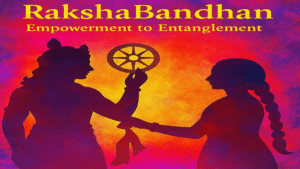
Delhi University’s Revolutionary War on Toxic Love
When Delhi University announced its groundbreaking course “Negotiating Intimate Relationships,” I watched social media explode with giggles, memes, and hush-hush conversations. WhatsApp groups buzzed with jokes about “PhD in Love” and “Professor Pyaar.” Coffee shop discussions turned into snickering sessions about whether students would get grades for kissing or homework on heartbreak. But as I scrolled through the endless stream of comic reactions, I couldn’t help but wonder: Are we really laughing because we think it’s funny, or because we’re too uncomfortable to acknowledge how desperately we need this?
Perhaps those giggling at this “frivolous” academic pursuit aren’t fully cognizant of the blood-stained incidents that have painted our country’s relationship landscape over the past year. Maybe they haven’t connected the dots between our collective emotional illiteracy and the morgues filled with young bodies whose only crime was loving or being loved by the wrong person. In our rush to mock academia’s foray into matters of the heart, we’ve forgotten that the heart, left uneducated, can become a weapon.
When Love Becomes Lethal: The Course Delhi University Had to Create
Delhi University’s decision to launch this course wasn’t born from academic whimsy—it emerged from necessity, like a emergency room opening in the middle of a war zone. Starting in the 2025-26 academic session, “Negotiating Intimate Relationships” will be a four-credit general elective designed by the Department of Psychology, open to undergraduate students across all disciplines.
The curriculum reads like a survival manual disguised as academia: three lectures and one tutorial per week covering the psychology of relationships, theories of love and intimacy (including Robert Sternberg’s Triangular Theory), recognizing red flags and manipulation tactics, and building healthy, lasting partnerships. Students will analyze films like Kabir Singh and Titanic—not for entertainment, but to deconstruct how popular culture romanticizes toxicity and teaches us to mistake obsession for love.
But this isn’t just about textbook theories. Students will engage in breakup scenario analysis, dating culture debates, and social media behavior reviews—essentially learning to navigate the emotional minefields that previous generations stumbled through blindly.
The Global Classroom: Learning Love as a Life Skill
Delhi University isn’t pioneering this alone. Across the globe, prestigious institutions have quietly been building what we might call “emotional intelligence curricula”—recognizing that the same rigor we apply to understanding economics should apply to understanding the human heart.
Northwestern University blazed this trail with “Building Loving and Lasting Relationships: Marriage 101,” treating partnership as a skill set worthy of academic study. Stanford University offers “What is Love?”—an interdisciplinary exploration spanning neuroscience, anthropology, and psychology. Stanford alumna Ali Maggioncalda, who founded the relationship wellness app Lovewick, credits her interdisciplinary education for understanding both the neurochemical and social complexities of human connection.
Harvard Medical School conducts cutting-edge research on “The Science of Love,” where researchers like Richard S. Schwartz and Jacqueline Olds—married for nearly five decades—study love as both a neurochemical phenomenon and evolutionary survival mechanism. City University of Hong Kong provides “Love, Sex, and Relationships” with psychological frameworks, while University of Toronto offers “The Arts and Science of Relationships” through Coursera, democratizing relationship education globally.
These aren’t fringe experiments—they’re responses to a global crisis of emotional illiteracy that’s claiming lives.
The Blood on Our Hands: Why This Course Can’t Wait
Those giggles stop feeling quite so innocent when you realize what we’re actually laughing about. Between late May and early June 2025, Delhi alone witnessed three murders rooted in toxic intimacy: Komal (21) strangled and dumped in Chhawla canal, Vijaylaxmi (19) stabbed to death by her boyfriend, and Mehek Jain (18) killed and set on fire by her partner. These weren’t crimes of passion—they were consequences of emotional illiteracy.
The 2023 Pune case haunts me: a 21-year-old engineering student killed his girlfriend after she refused to reconcile, then posted about it on social media like a status update. The 2024 Delhi coaching center murder revealed how social media stalking has created new pathways to violence. The Bangalore techie suicide showed how online harassment and relationship manipulation can drive someone to choose death over enduring another day of psychological torture.
Each incident shares the same DNA: inability to handle rejection, toxic ideas about possession disguised as love, and complete absence of emotional regulation skills. These aren’t isolated tragedies—they’re symptoms of a generation that knows how to code and calculate but not how to communicate or cope.
The Numbers Don’t Lie: A Generation in Crisis
The statistics read like a horror story written in spreadsheet cells. Up to 19% of teens experience dating violence, with 1.5 million teenagers reporting abusive behavior in relationships. The truly chilling part? Only 9% of teens in abusive relationships report the abuse—meaning for every story we hear, nine others suffer in silence.
Digital abuse has created entirely new categories of trauma: 28% of students in relationships experience digital dating abuse, with males reporting higher rates (32%) than females (24%). The global picture is even more sobering—nearly 24% of adolescent girls who’ve been in relationships, approximately 19 million globally, will experience physical and/or sexual intimate partner violence by age 20.
In India, research reveals that women on dating apps face systematic risks: catfishing, stalking, harassment, abuse, and physical violence, with trust breakdown emerging as the primary concern. A 2020 study found 60% of Indian respondents were looking forward to increased sexual activity post-COVID restrictions, yet without any proportional emotional preparation for these connections.
Harvard research explains the neurological vulnerability: falling in love triggers stress hormone releases and decreases serotonin levels similar to obsessive states and depression. Quite literally, “a brain in love looks like a brain on drugs”—which explains why people make catastrophically poor decisions when emotionally overwhelmed.
Beyond Individual Healing: The Ripple Effect Revolution
The benefits of relationship education extend far beyond preventing individual heartbreak. Harvard’s legendary Grant Study, tracking subjects for over 80 years, identified relationship quality as the single most powerful predictor of human happiness and longevity—more than wealth, career success, or physical health.
Societal Transformation: People in healthy relationships demonstrate better physical health, stronger immune systems, lower depression rates, and greater professional success. Conversely, relationship dysfunction creates cascading social costs: domestic violence, child abuse, workplace harassment, and mental health crises that burden healthcare systems and taxpayers.
Economic Impact: Workplace research consistently shows that emotionally intelligent employees have lower absenteeism, better performance, and stronger leadership capabilities. By teaching relationship skills, Delhi University potentially improves not just personal lives but economic productivity.
Generational Change: Students who understand emotional regulation, recognize manipulation, and communicate effectively become better parents, partners, and community members. They break cycles of generational trauma and model healthy relationships for others.
Digital Age Navigation: In an era where relationships are increasingly mediated by technology, the course addresses unprecedented challenges: social media surveillance, dating app dynamics, and digital communication as primary relationship tools. Students learn to maintain authentic connections while navigating technological complexities safely.
The Academic Rigor Behind the Romance
Critics might dismiss studying love as “soft science,” but relationship research involves neuroscience, psychology, sociology, anthropology, economics, and evolutionary biology. The Gottman Institute can predict divorce with 94% accuracy by observing couples for just 15 minutes, identifying specific communication patterns that determine relationship success or failure.
What makes Delhi University’s approach revolutionary is its cultural specificity. By analyzing Bollywood films alongside Western research, the course addresses uniquely Indian relationship dynamics while maintaining scientific rigor. Students learn to distinguish between the romanticized toxicity of popular culture and evidence-based partnership models.
Prevention Over Intervention: This represents a paradigm shift from treating relationship trauma to preventing it. Teaching red flag recognition, boundary setting, and healthy communication equips students with tools to avoid abusive relationships entirely—like vaccination against emotional violence.
The Revolution Hiding in Plain Sight
As I reflect on those initial giggles and whispered jokes about Delhi University’s course, I realize they reveal something profound about our collective discomfort with emotional vulnerability. We’ll spend years learning calculus we’ll never use but resist spending a semester learning communication skills that could save our lives.
Perhaps the real revolution isn’t that Delhi University is teaching love—it’s that we’ve reached a point where love needs to be taught at all. In previous generations, extended families, close-knit communities, and slower-paced courtships provided natural relationship education. Today’s students navigate love through dating apps, social media, and Bollywood fantasies, with no roadmap for distinguishing healthy connection from toxic attachment.
Cultural Courage: In a society where discussing relationships openly is often considered inappropriate, Delhi University’s course represents significant cultural courage. It treats emotional literacy as seriously as financial or digital literacy—recognizing that love is the new academic essential, and the ability to love and be loved well determines life quality more than most skills we traditionally prioritize.
Conclusion: The Heart’s Curriculum
Those who giggled at Delhi University’s relationship course might not have realized they were laughing at a potential solution to one of our most pressing social crises. In a country where love songs celebrate obsession, where films romanticize stalking, and where young people learn about relationships from sources that profit from dysfunction, this course offers something revolutionary: the radical idea that understanding the heart requires the same intellectual rigor we apply to understanding the world.
The students entering these classrooms won’t just be learning about love—they’ll be participating in a quiet revolution that could transform how entire generations approach human connection. When we teach the mathematics of the heart alongside the mathematics of the marketplace, when we treat emotional intelligence as seriously as artificial intelligence, when we embrace that love is the new academic essential, we’re not just changing academic curricula—we’re potentially changing the very nature of human relationships. The ripple effects of this education may determine whether future generations continue stumbling blindly through love’s complexities or navigate them with wisdom, creating a world where love heals rather than harms, where passion empowers rather than destroys, and where the phrase “I will die for love” becomes poetry rather than prophecy.


